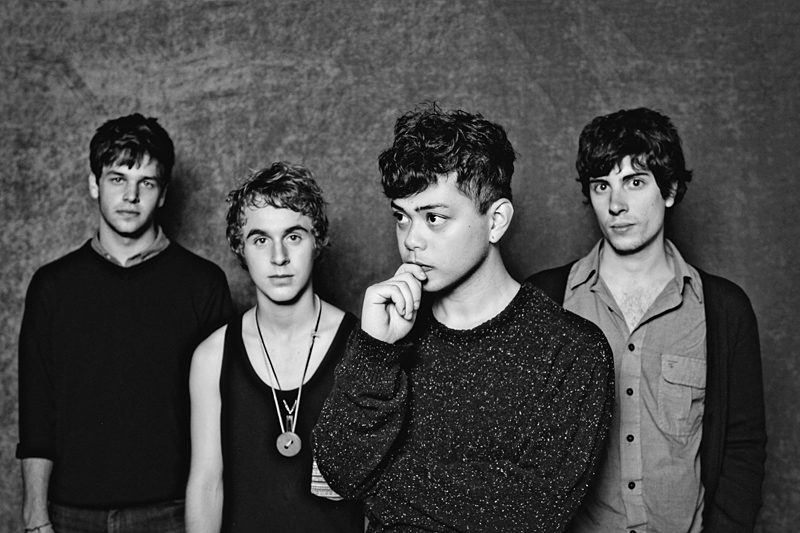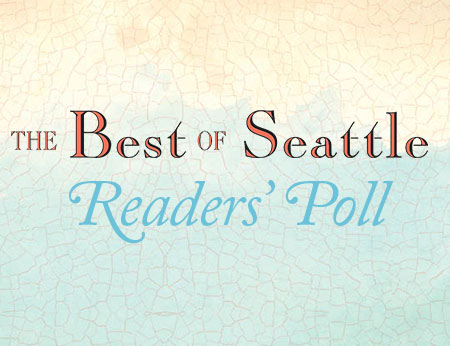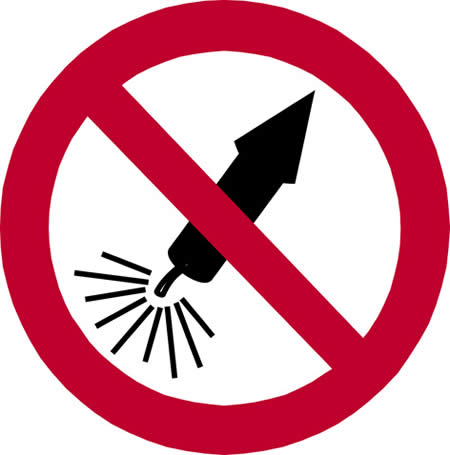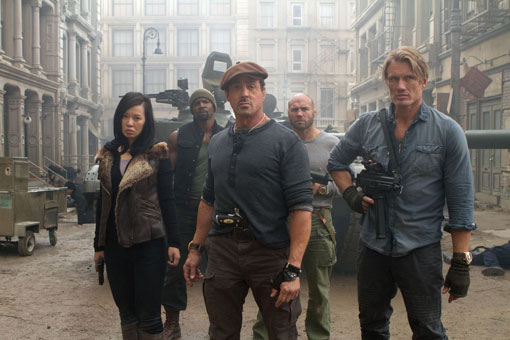Beat Connection, Surf Noir
In April, the electro duo Beat Connection released a shinier, fuller version of their Surf Noir EP, eight glittering dance tracks as dazzling as an Ibiza sunset. The majority of the songs are instrumental, but that doesn’t stop them from conveying a range of feeling from softly poignant (“Wildheart”) to wholly majestic (“Theme From Yours Truly”). The two tracks with vocals, “In the Water” and “Silver Screen,” compete to be the best pop song to come out of this city in the past couple of years. There wasn’t a better record than Surf Noir to soundtrack this summer, and we might be saying the same thing next summer. ERIN K. THOMPSON
Craft Spells, Idle Labor
In a musical landscape dominated by a fiddly folk revival, the full-length debut from Seattle newcomers Craft Spells stands apart with its ringing guitars, sleek synths, taut pop melodies, and dark dance hooks. Standouts like “Party Talk” and “After the Moment” tell of young sensitivity and heartbreak, but there’s nothing dour about about these songs; they’re exuberant in their youthfulness. Idle Labor is best listened to driving on a new spring day with the windows down; it’s the perfect scenario for an album that will be remembered for injecting fresh air into the Seattle scene. EKT
Fleet Foxes, Helplessness Blues
This is the 100 percent-virgin-wool Filson Mackinaw Cruiser of the indie-folk genre, the gold standard to which all wannabe singer/songwriter/oboists aspire, whether they will readily admit to it or not. When historians (maybe too generous a description of music critics) piece together 100 years of Seattle music, Helplessness Blues will be a monument to this era. And they’ll have discovered a record that wraps all the insecurities and contradictions of 21st-century 20-somethings in a bolt of Goodwill-found wool. Hopefully it will be seen as a gateway to the raging, George Harrison–esque record that these guys know full well they’re capable of delivering. They’ve teased such an aesthetic from the stage this year. CHRIS KORNELIS
Metal Chocolates, Metal Chocolates
An audio treat as tasty as the custom-wrapped chocolates packaged in the cassette gift box that was, for a time, the only way to hear this band’s music. This unorthodox presentation belies the album’s complex, dopamine-drenched sounds and floating, free-form vocal tracks, in the same trippy ballpark as Shabazz Palaces and THEESatisfaction. Producer/vocalist OC Notes repeatedly amazes with the impressionistic solo records that magically appear on his Bandcamp page every couple of months. And while few local hip-hop records are on the level of MC Rik Rude’s collaborative (with P Smoov) Fresh Espresso album Glamour, this Notes/Rude joint(ed) venture explores a more mind-expanding realm that is surprisingly great, even for artists of this caliber. TODD HAMM
Sandrider, Sandrider
Unlike his Akimbo records, on which bassist Jon Weisnewski hurls a snarling low end against Aaron Walters’ untamed guitar in an awesome, yet often dissonant, display of aggression, Sandrider finds Weisnewski (who’s moved to the guitar) coming together more often harmoniously with bassist Jesse Roberts (of The Ruby Doe) to form a monumental wall of sound. It’s more pure electric volume than crunchy distortion-thrash, which is the root of their appeal: It’s as though somebody fired up a smooth-running yet monstrous 12-cylinder muscle car and sent it barreling down the freeway (or mythical dune-field) at punishing speeds. It’s also worth mentioning that drummer Nat Damm (who also pounds the kit for Akimbo) is a badass in whichever arrangement he finds himself. Sandrider currently lays claim to the loudest record—and live show—in the city, bar none, and both are pretty incredible. TH
Shabazz Palaces, Black Up
If Helplessness Blues, Seattle’s other indisputable best album this year, secures a place here by sounding both of its time and of the past, Shabazz Palaces’ Black Up sounds confidently like right now and the future. As a snapshot of Seattle hip-hop 2011, Black Up reflects a fecund underground—an alternative history to Macklemore’s singular triumphalism—populated by forward-thinking, genre-bending artists. (That it served as much of the country’s introduction to Shabazz collaborators THEESatisfaction is entirely appropriate.) In 2021, Black Up‘s deep beats and adventurous productions will sound as fresh and bizarre as they do now; Ishmael Butler’s intricate, involuted raps and rhyme schemes will sound as inimitably unique. ERIC GRANDY
Jesse Sykes & The Sweet Hereafter, Marble Son
The alt-country group’s fourth full-length release is the inevitable, culminating expression of their continued evolution into psychedelia. Leaving behind the tender twang of albums like Reckless Burning, Marble Son opts for highly arranged, guitar-driven rock anthems like “Pleasuring the Divine” and “Come to Mary” that echo with reverb and Sykes’ flickering vocals. Where 2007’s Like, Love, Lust & the Open Halls of the Soul tiptoed around Sykes’ eerie register and Phil Wandscher’s intuitive guitar work, and 2008’s expansive EP Gentleness of Nothing hinted at ambitious future arrangements, Marble Son is a glorious leap finally taken into mystical, moody, psych-rock-saturated surroundings, offering fans a soundtrack of ageless, contemplative listening. GWENDOLYN ELLIOTT
Witch Gardens, Alice, Agatha, Branch & Christ
2011 is the year that the city fell spellbound for Witch Gardens’ sweet and adorable, but still heavily rocking, lo-fi pop, simply but masterfully crafted with purring, girly vocals, buzzy guitars and autoharp, and freewheeling tempo changes. AAB&C contains songs about haircuts (“Baby Got a Haircut”), your dad’s lame girlfriend (“Shelly”), awkward parties (“So Many Parties”), and being super-fly (“Softball Chick”). And while we’ve all heard about how cute Witch Gardens songs are, they’re also acutely perceptive and touching. The charming AAB&C was a first good taste of Witch Gardens, as enduring as it is endearing. EKT








